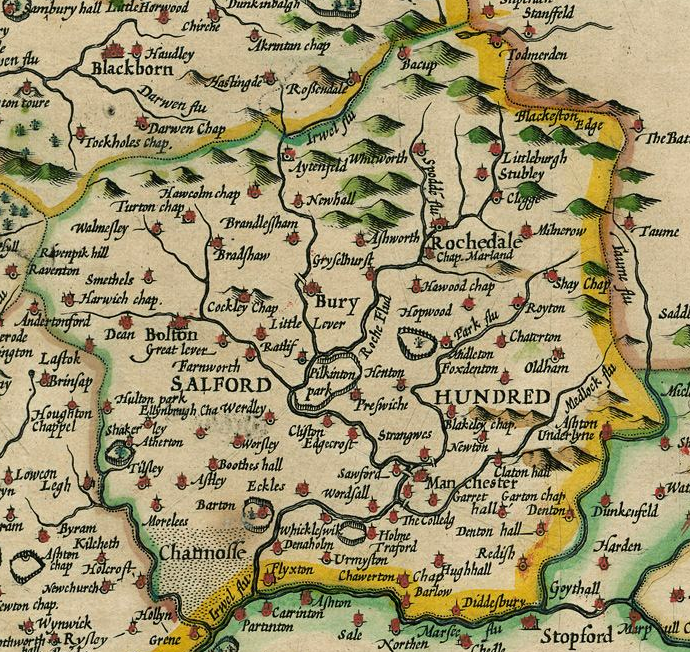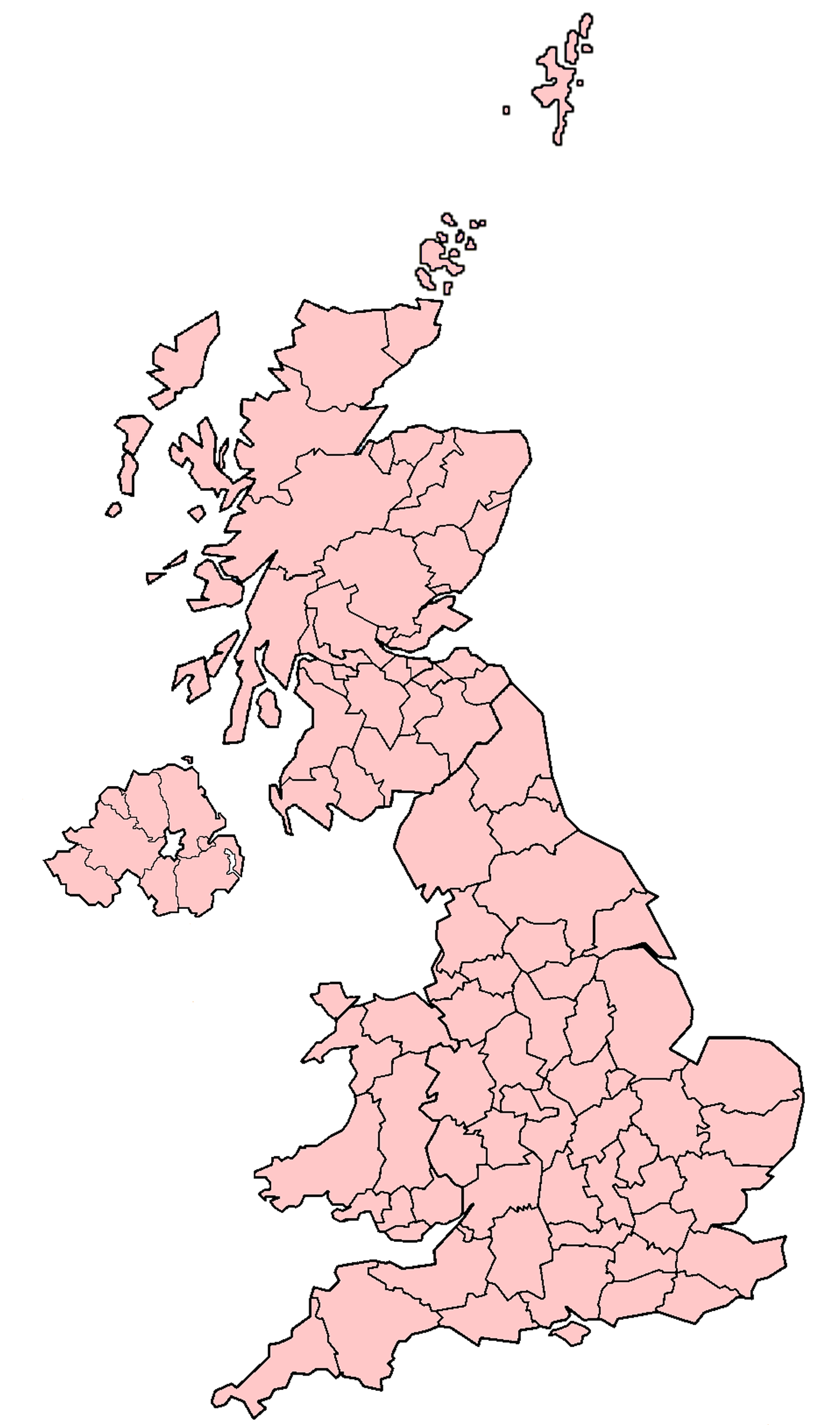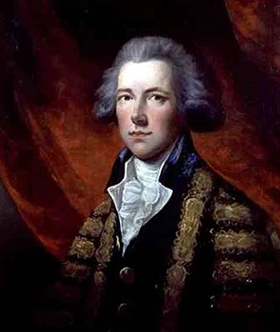|
Duke Of Lancaster's Own Yeomanry
The Duke of Lancaster's Own Yeomanry (DLOY) was a yeomanry unit of the British Army from 1798 to 1992. Originally raised as part-time cavalry for home defence and internal security, the regiment sent mounted infantry to serve in the Second Boer War. During World War I it carried out mounted duties in Sinai and Palestine Campaign, Egypt and Palestine and on the Western Front (World War I), Western Front. By 1917 the reserve units at home had become Bicycle infantry, cyclists and the regiment serving on the Western Front joined an infantry battalion, seeing action at the Battle of Passchendaele, against the German Spring Offensive and in the final Allies of World War I, Allied Hundred Days Offensive. At the beginning of World War II the regiment gave up its horses and formed two regiments of medium artillery, which served in the Middle East Command, Middle East, Italian Campaign (World War II), Italy and Western_Front_(World_War_II)#1944–1945:_The_Second_Front, North West Europe. ... [...More Info...] [...Related Items...] OR: [Wikipedia] [Google] [Baidu] |
Yeomanry
Yeomanry is a designation used by a number of units and sub-units in the British Army Reserve which are descended from volunteer cavalry regiments that now serve in a variety of different roles. History Origins In the 1790s, following the French Revolution and the rise of Napoleon Bonaparte, the perceived threat of invasion of the Kingdom of Great Britain was high. To improve the country's defences, Volunteer regiments were raised in many counties from yeomen. While the word "yeoman" in normal use meant a small farmer who owned his land, Yeomanry officers were drawn from the nobility or the landed gentry, and many of the men were the officers' tenants or had other forms of obligation to the officers. At its formation, the force was referred to as the Yeomanry Cavalry. Members of the yeomanry were not obliged to serve overseas without their individual consent. Early 19th century During the first half of the nineteenth century, Yeomanry Regiments were used extensively in ... [...More Info...] [...Related Items...] OR: [Wikipedia] [Google] [Baidu] |
Allies Of World War I
The Allies or the Entente (, ) was an international military coalition of countries led by the French Republic, the United Kingdom, the Russian Empire, the United States, the Kingdom of Italy, and the Empire of Japan against the Central Powers of the German Empire, Austria-Hungary, the Ottoman Empire, and the Kingdom of Bulgaria in World War I (1914–1918). By the end of the first decade of the 20th century, the major European powers were divided between the Triple Entente and the Triple Alliance. The Triple Entente was made up of the United Kingdom, France, and Russia. The Triple Alliance was originally composed of Germany, Austria–Hungary, and Italy, but Italy remained neutral in 1914. As the war progressed, each coalition added new members. Japan joined the Entente in 1914 and, despite proclaiming its neutrality at the beginning of the war, Italy also joined the Entente in 1915. The term "Allies" became more widely used than "Entente", although the United Kingdom, Fran ... [...More Info...] [...Related Items...] OR: [Wikipedia] [Google] [Baidu] |
Salford
Salford ( ) is a City status in the United Kingdom, city in Greater Manchester, England, on the western bank of the River Irwell which forms its boundary with Manchester city centre. Landmarks include the former Salford Town Hall, town hall, Salford Cathedral, Salford Lads' Club and St Philip's Church, Salford, St Philip's Church. In 2021 it had a population of 129,794. The demonym for people from Salford is ''Salfordian''. Salford is the main settlement of the wider City of Salford metropolitan borough, which incorporates Eccles, Greater Manchester, Eccles, Pendlebury, Swinton, Greater Manchester, Swinton and Walkden. Salford was named in the Early Middle Ages, though evidence exists of settlement since Neolithic times. It was the seat of the large Hundred of Salford in the Historic counties of England, historic county of Lancashire and was granted a market charter in about 1230, which gave it primary cultural and commercial importance in the region.. It was eventually overt ... [...More Info...] [...Related Items...] OR: [Wikipedia] [Google] [Baidu] |
Manchester
Manchester () is a city and the metropolitan borough of Greater Manchester, England. It had an estimated population of in . Greater Manchester is the third-most populous metropolitan area in the United Kingdom, with a population of 2.92 million, and the largest in Northern England. It borders the Cheshire Plain to the south, the Pennines to the north and east, and the neighbouring city of Salford to the west. The city borders the boroughs of Trafford, Metropolitan Borough of Stockport, Stockport, Tameside, Metropolitan Borough of Oldham, Oldham, Metropolitan Borough of Rochdale, Rochdale, Metropolitan Borough of Bury, Bury and City of Salford, Salford. The history of Manchester began with the civilian settlement associated with the Roman fort (''castra'') of Mamucium, ''Mamucium'' or ''Mancunium'', established on a sandstone bluff near the confluence of the rivers River Medlock, Medlock and River Irwell, Irwell. Throughout the Middle Ages, Manchester remained a ma ... [...More Info...] [...Related Items...] OR: [Wikipedia] [Google] [Baidu] |
Liverpool
Liverpool is a port City status in the United Kingdom, city and metropolitan borough in Merseyside, England. It is situated on the eastern side of the River Mersey, Mersey Estuary, near the Irish Sea, north-west of London. With a population of (in ), Liverpool is the administrative, cultural and economic centre of the Liverpool City Region, a combined authority, combined authority area with a population of over 1.5 million. Established as a borough in Lancashire in 1207, Liverpool became significant in the late 17th century when the Port of Liverpool was heavily involved in the Atlantic slave trade. The port also imported cotton for the Textile manufacture during the British Industrial Revolution, Lancashire textile mills, and became a major departure point for English and Irish emigrants to North America. Liverpool rose to global economic importance at the forefront of the Industrial Revolution in the 19th century and was home to the Liverpool and Manchester Railway, firs ... [...More Info...] [...Related Items...] OR: [Wikipedia] [Google] [Baidu] |
Troop
A troop is a military sub-subunit, originally a small formation of cavalry, subordinate to a squadron. In many armies a troop is the equivalent element to the infantry section or platoon. Exceptions are the US Cavalry and the King's Troop Royal Horse Artillery where a troop is a subunit comparable to an infantry company or artillery battery. Historically the remainder of the Royal Horse Artillery used the term ''troop'' in the same manner but they eventually aligned with the rest of the Royal Regiment of Artillery in referring to troops as subordinate to artillery batteries. ''Troops'' is often used to refer to the other members of one's company or cause, but because of its military connotations, it conveys a particularly altruistic type of dedicated worker. Traditionally, ''troops'' refers to the soldiers in a military. A cavalry soldier of private rank is called a " trooper" in many Commonwealth armies (abbreviated "Tpr", not to be confused with "trouper"). A re ... [...More Info...] [...Related Items...] OR: [Wikipedia] [Google] [Baidu] |
County Of Lancaster
Lancashire ( , ; abbreviated ''Lancs'') is a ceremonial county in North West England. It is bordered by Cumbria to the north, North Yorkshire and West Yorkshire to the east, Greater Manchester and Merseyside to the south, and the Irish Sea to the west. The largest settlement is Preston, and the county town is the city of Lancaster. The county has an area of and a population of 1,490,300. Preston is located near the centre of the county, which is urbanised and includes the towns of Blackburn and Burnley; the seaside resort of Blackpool lies to the west, and Lancaster is in the north. For local government purposes the county comprises a non-metropolitan county, with twelve districts, and two unitary authority areas: Blackburn with Darwen and Blackpool. Lancashire County Council and the two unitary councils collaborate through the Lancashire Combined County Authority. The county historically included northern Greater Manchester and Merseyside, the Furness and Cartmel peninsulas ... [...More Info...] [...Related Items...] OR: [Wikipedia] [Google] [Baidu] |
Lord Lieutenant
A lord-lieutenant ( ) is the British monarch's personal representative in each lieutenancy area of the United Kingdom. Historically, each lieutenant was responsible for organising the county's militia. In 1871, the lieutenant's responsibility over the local militia was removed. However, it was not until 1921 that they formally lost the right to call upon able-bodied men to fight when needed. Lord-lieutenant is now an honorary titular position usually awarded to a notable person in the county, and despite the name, may be either male or female, peer or not. Origins England and Wales Lieutenants were first appointed to a number of Historic counties of England, English counties by King Henry VIII in the 1540s, when the military functions of the sheriffs were handed over to them. Each lieutenant raised and was responsible for the efficiency of the local militia units of his county, and afterwards of the yeomanry and volunteers. He was commander of these forces, whose officers he a ... [...More Info...] [...Related Items...] OR: [Wikipedia] [Google] [Baidu] |
William Pitt The Younger
William Pitt (28 May 1759 – 23 January 1806) was a British statesman who served as the last prime minister of Kingdom of Great Britain, Great Britain from 1783 until the Acts of Union 1800, and then first Prime Minister of the United Kingdom, prime minister of the United Kingdom from January 1801. He left office in March 1801, but served as prime minister again from 1804 until his death in 1806. He was also Chancellor of the Exchequer for all of his time as prime minister. He is known as "Pitt the Younger" to distinguish him from his father, William Pitt the Elder, who had also previously served as prime minister. Pitt's prime ministerial tenure, which came during the reign of King George III, was dominated by major political events in Europe, including the French Revolution and the Napoleonic Wars. Pitt, although often referred to as a Tory (British political party), Tory, or "new Tory", called himself an "independent Whig (British political party), Whig" and was generally oppo ... [...More Info...] [...Related Items...] OR: [Wikipedia] [Google] [Baidu] |
French Revolutionary Wars
The French Revolutionary Wars () were a series of sweeping military conflicts resulting from the French Revolution that lasted from 1792 until 1802. They pitted French First Republic, France against Kingdom of Great Britain, Great Britain, Habsburg monarchy, Austria, Kingdom of Prussia, Prussia, Russian Empire, Russia, and several other countries. The wars are divided into two periods: the War of the First Coalition (1792–1797) and the War of the Second Coalition (1798–1802). Initially confined to Europe, the fighting gradually assumed a global dimension. After a decade of constant warfare and aggressive diplomacy, France had conquered territories in the Italian peninsula, the Low Countries, and the Rhineland with its very large and powerful military which had been totally mobilized for war against most of Europe with mass conscription of the vast French population. French success in these conflicts ensured military occupation and the spread of revolutionary principles over mu ... [...More Info...] [...Related Items...] OR: [Wikipedia] [Google] [Baidu] |
Queen's Own Yeomanry
The Queen's Own Yeomanry (QOY) is a reserve light cavalry reconnaissance regiment of the British Army. The regiment is part of the 19th Brigade, which was reactivated in 2022. The regimental headquarters is at Fenham Barracks, Newcastle, with squadrons in York, Wigan, Chester and Newcastle. History The Queens Own Yeomanry was initially formed on 1 April 1971 as the 2nd Armoured Car Regiment from five of the yeomanry units across the North and Middle of England and South West Scotland. During the Cold War The Queen's Own Yeomanry was a British Army of the Rhine Regiment with an Armoured Reconnaissance role in Germany. With the Strategic Defence Review in 1999 the geographical locations of the regiment changed to encompass East Scotland and Northern Ireland. Soldiers from the regiment have served both in Iraq and Afghanistan. Under Army 2020, three squadrons transferred to the Scottish and North Irish Yeomanry and it gained two squadrons from the Royal Mercian and Lancastrian ... [...More Info...] [...Related Items...] OR: [Wikipedia] [Google] [Baidu] |
The Second Front
''The'' is a grammatical article in English, denoting nouns that are already or about to be mentioned, under discussion, implied or otherwise presumed familiar to listeners, readers, or speakers. It is the definite article in English. ''The'' is the most frequently used word in the English language; studies and analyses of texts have found it to account for seven percent of all printed English-language words. It is derived from gendered articles in Old English which combined in Middle English and now has a single form used with nouns of any gender. The word can be used with both singular and plural nouns, and with a noun that starts with any letter. This is different from many other languages, which have different forms of the definite article for different genders or numbers. Pronunciation In most dialects, "the" is pronounced as (with the voiced dental fricative followed by a schwa) when followed by a consonant sound, and as (homophone of the archaic pronoun ''thee'' ... [...More Info...] [...Related Items...] OR: [Wikipedia] [Google] [Baidu] |








